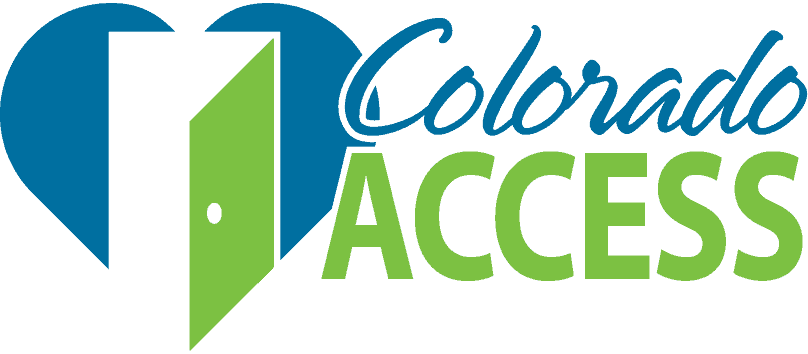Dialectical Behavior
At CuraWest we utilize a wide range of evidence-based therapeutic methods, including Dialectical Behavioral Therapy (DBT). DBT is a type of Cognitive Behavioral Therapy (CBT) developed to help people struggling with persistent negative emotions and related behavioral patterns. DBT is a skills training that includes four modules: mindfulness, distress tolerance, emotional regulation and interpersonal effectiveness. The predominant goal of DBT is to help clients live a “life worth living.” Clients reach this goal as they learn to live in the present moment, develop personal goals, decrease negative emotions and increase positive emotions, and improve their interpersonal relationships.
In early recovery from addiction, we tend to be preoccupied with regrets from the past and fear of the future. We need to intentionally practice living in the present moment to reduce our distress. The mindfulness skills of DBT allow us to focus on today. The emotional regulation skills of DBT allow us to stabilize our emotions. While actively using substances, the neurochemical effects on the brain have contributed to emotional dysregulation. DBT provides us with coping skills that can expedite the process of reaching neurochemical homeostasis.
At CuraWest we provide each of our clients with an effective program of addiction recovery that combines evidence-based therapies like CBT and DBT, the 12-Step method and other peer support groups, and holistic treatment options. We offer a multi-staged program of addiction treatment in Denver, Colorado that helps clients lay a solid foundation for lasting sobriety. To learn more, contact us today.
The History & Application of DBT
Dialectical Behavioral Therapy (DBT) was initially developed in the late 1970s by Dr. Marsha Linehan. DBT is a cognitive behavioral treatment, originally developed to treat chronically suicidal individuals who had been diagnosed with borderline personality disorder. This proven therapeutic method is now recognized as the gold standard psychological treatment for this population and many others. In addition, research has shown that DBT is effective in treating a wide range of other disorders such as substance dependence, depression, post-traumatic stress disorder (PTSD), and eating disorders. It is highly effective in treating all personality disorders and it is one of the only effective treatments for antisocial personality disorder.
DBT was the first psychotherapy to formally incorporate mindfulness techniques. DBT blends Cognitive Behavioral Therapy with long-standing tenets of Zen Buddhism. The dictionary definition of dialectics is “the art of investigating or discussing the truth of options; inquiry into metaphysical contradictions and their solutions-the existence or action of opposing forces and concepts.” Being able to think and act more dialectically allows clients to reduce the black and white thinking which often leads to relapse. The ability to think more dialectically also allows clients to reduce negative emotions, reduce distress, increase emotional regulation, decrease mood-dependent behaviors and decrease impulsivity.
We Are Here For You
Let Us Help You Heal
Our Drug & Alcohol detoxification experience is second to none.
Learn how we can help by speaking with one of our Treatment Advisors today.
The Four Modules of DBT
Dialectical Behavior Therapy can be broken down into 4 distinctive modules: mindfulness, distress tolerance, emotional regulation, and interpersonal effectiveness. These modules are taught in succession during a series of individual or group therapy sessions. We encourage clients to participate in both levels of care we provide, which allows them the opportunity to move through all 4 modules at a reasonable pace.
Module 1: Mindfulness
DBT adapted mindfulness techniques from Buddhism and derived teachings from other Eastern cultures with the goal of delivering them in a widely accessible way. Mindfulness concerns staying grounded in the present moment and experiencing without judgment. During this stage of the process, clients cultivate mindfulness techniques which allow them to acknowledge negative thoughts and feelings without getting down on themselves. They work on changing their perspective about negative emotions. For example, they might have previously thought, “I’m upset — what right do I have to be upset? I need to get it together, I shouldn’t be upset about this.” Mindfulness will allow them to change this thought process to something more like, “I feel upset right now, and that is okay. I’m allowed to be upset; I know this feeling is normal and it will pass.”
Module 2: Distress Tolerance
Learning how to effectively handle high-stress situations is important to continued sobriety. During the second module of DBT, clients learn what actions to take in the face of a personal crisis. Those who struggle with substance dependency tend to turn to drugs or alcohol when they are feeling distressed, frantically attempting to numb out uncomfortable feelings. While chemical substances might provide short-term relief, they only work to exacerbate issues in the long run. Distress tolerance teaches clients how to address uncomfortable emotions while effectively working through high-stress situations by employing a number of healthy coping mechanisms. Some of the skills clients learn are self-distraction, breathing techniques, and radical acceptance.
Our Drug & Alcohol Detox Services Include
Module 3: Emotional Regulation
Many individuals who struggle with substance use disorders grow up believing that certain emotions are “bad” or “wrong.” For example, a person might grow up being told not to cry, leading them to associate sadness with weakness. Rather than express sadness in a healthy way, acknowledging that this emotion is a normal part of life, this person might attempt to numb out or stifle sadness with drugs or alcohol. Emotional regulation helps clients identify what it is they are feeling and why, and teaches them to work through emotions with acceptance. Clients learn to embrace emotional vulnerability; they learn how to cope with uncomfortable emotions while welcoming positive emotions. They begin to understand that while they will undeniably experience emotions across the spectrum, they have some control over how long they sit in any one feeling.
Module 4: Interpersonal Effectiveness
The final module in DBT targets social skills, interpersonal relationships, and healthy communication. Those who are new to addiction recovery often have a difficult time setting and maintaining personal boundaries, partially because they are unclear on how to identify or address their own emotional needs. Clients identify areas they struggle with in their interpersonal relationships, and develop interpersonal skills in a safe and supportive environment through open discussion and role play. During discussions clients learn healthy communication skills. They also learn which relationships are sustainable, and which relationships might not be conducive to continued sobriety. As is the case with the other modules of DBT, acceptance and positive change are the crux of interpersonal effectiveness.
Ready To Begin Your Drug & Alcohol Detox?
We Offer A Safe & Effective Program
Don’t let Drug & Alcohol addiction control your life.
Call us today and let’s get you started on the path to a better you.
DBT & Addiction Recovery
DBT has proven to be an extremely effective therapeutic modality for those suffering from substance use disorders. Like other methods of intervention, DBT addresses self-destructive behavioral patterns hierarchically. The most dangerous and potentially life-threatening behavioral patterns are addressed first — the use of chemical substances that are posing imminent threats to health, like increased risk of overdose. Once these behavioral changes are made, clients focus on developing and improving skills to help them maintain fulfilled lives in recovery.
One of the main ideas behind DBT is also one of the main ideas behind Alcoholics Anonymous and other 12 Step programs — acceptance. Clients learn to accept the reality of their substance use issue, acknowledging that total abstinence is the only way to achieve a healthy, happy, and meaningful life. An article published by the National Library of Medicine states, “Because a lifetime of abstinence may seem out of reach, the therapist encourages the patient to commit to a length of abstinence that the patient feels certain is attainable—a day, a month, or just 5 minutes. At the end of this period, the patient renews the commitment, again for a sure interval. Ultimately, he or she achieves long-term, stable abstinence by piecing together successive delimited drug-free periods. The Twelve Steps slogan, “Just for Today,” invokes the same cognitive strategy to reach the same goal—a lifetime of abstinence achieved moment by moment.”
Benefits of DBT
DBT includes five essential functions:
- Helping the client gain the motivation necessary to facilitate lasting change.
- Enhancing the emotional capabilities of the client.
- Generalizing new behaviors.
- Structuring the therapeutic environment.
- Enhancing the capability and motivation of the therapist.
DBT takes place in a collaborative setting. Clients work together with their assigned therapist to illuminate negative behavioral and thought patterns and begin developing alternative methods of coping. There are many benefits to employing DBT in an integrated addiction recovery setting. Benefits include:
- Works to improve interpersonal relationships.
- Helps clients develop life skills that can be utilized for more than addiction recovery.
- Helps clients improve their overall quality of life.
- Leads to the development of healthy and productive coping mechanisms.
- Works to foster a sense of acceptance surrounding the realities of recovery.
- Improves communication skills, which helps clients foster healthier relationships.
- Helps clients regulate and work through uncomfortable feelings and emotions.
Contact us today to learn more about the benefits of DBT and the practical application of this treatment method in our multi-phased recovery program.
Begin Healing Now!
Have A Call With One Of Our Treatment Advisors
Don’t Suffer Any Longer
Dialectical Behavior Therapy is only one of the proven modalities offered at CuraWest. Our program of addiction recovery in Denver, Colorado is both integrated and individualized, providing clients with a treatment experience unlike any other. As soon as you make the decision to reach out for help, you will be put in contact with an experienced Treatment Advisor who will walk you through our simple admissions process. We begin by conducting a brief assessment which helps us determine whether or not our recovery program is right for you. If it is determined that you would benefit from our medical detox program and/or residential treatment program, we conduct a free, no obligation health insurance benefit check and help arrange local ground transportation to our facility. If you live out of state we will help you arrange more extensive travel plans, though additional travel expenses will be your responsibility. To learn more about our therapeutically-based treatment program or to get started on your own personal journey of addiction recovery, contact us today.


















